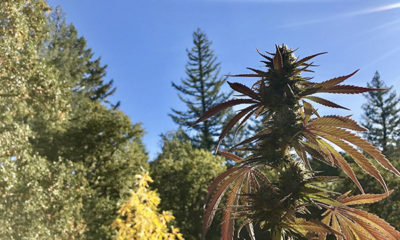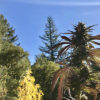
Joint Opinions
No, Cannabis Is Not as Dangerous as the Chernobyl Nuclear Disaster
Anti-pot author Alex Berenson compared cannabis to Chernobyl in a pithy but misguided tweet.
It might often feel like it’s not worth getting down in the mud with anti-cannabis prohibitionists, given that engaging with their platform serves to bring it more attention. However, in the face of harmful exaggeration, sometimes it is worth exposing the sheer bizarre logic of an anti-cannabis claim.
Former New York Times reporter and current anti-cannabis campaigner Alex Berenson is the author of “Tell Your Children,” an anti-legalization book that details the supposed dangers of widespread marijuana use, most disturbingly upticks in psychosis and subsequent violence. Though Berenson’s book has many detractors, in the cannabis industry and in the scientific community (including some of the researchers whose work he cites extensively), he’s still regarded as an authority on the matter of legalization and its potential pitfalls.
He’s also an active Twitter user and a possible HBO subscriber. This last conjecture is based on the latest from his account, in which he compared the nuclear meltdown at Chernobyl (subject of a popular new HBO miniseries) to the supposed scourge of cannabis.
Here’s the tweet:
Of course, there are obvious differences between the Chernobyl disaster and cannabis. One is a catastrophic accident that necessitated an infamous Soviet Union cover-up. The other one is a plant that the majority of Americans believe should be legal to buy, sell and consume. But the points of similarity are worth breaking down, if only because Berenson raised them.
First, there’s the assertion that the “dangerous burned airborne particles” from a nuclear disaster and cannabis consumption are comparable. While secondhand marijuana smoke isn’t something you’d necessarily want to be breathing in, its impact seems to be an as an irritant at worst with negligible effect on the environment as a whole — unlike the dangerous burned particles from Chernobyl, which were highly carcinogenic and whose environmental impact is felt in Pripyat and the surrounding area to this day.
Then, there’s the assertion of fertility damage. While some studies have indicated that cannabis can damage sperm count, others have shown an actual increase in sperm production. In terms of child-bearing itself, more and more pregnant women are using cannabis to fight nausea, despite strong doctor recommendations to abstain. Cannabis usage during pregnancy has been linked to lower infant birth weight — but not, notably, issues with conception. One study even linked legal cannabis with higher birth rates. Contrast this with the pregnancy and infant mortality shown in HBO’s “Chernobyl,” as viewers watch a fictionalized version of Lyudmilla Ignatenko’s real-life experience as the wife of a firefighter among the first on the scene of the Chernobyl explosion.
Next, there’s the death toll comparison. Berenson covers the supposed lives lost to cannabis extensively in his book, mostly via visceral true crime anecdotes of men who snapped and committed murder — because, as is essentially common knowledge, nobody has ever died from consuming or overdosing on cannabis. Chernobyl’s death toll does not require as much conjecture to piece together, although it’s still murky. Estimates range from thousands to tens of thousands of lives lost, and the number keeps increasing, due to the insidious nature of radiation and the cancers it causes.
Then, there’s the slick jab at the “highly engineered product” that is modern cannabis. It’s true that there are more ways to consume cannabis than ever, and that the product peddled is stronger and more concentrated than previous incarnations of cannabis. But cannabis is far from the only commonly consumed product that is “highly engineered” (pretty much every crop grown and eaten today has been bred using advanced scientific techniques, including genetic modification). The comparison between the engineering required to build and maintain a nuclear reactor and the selective breeding process required to produce loud bud is a tenuous one.
We do have to concede the last point: Cannabis does not produce electricity, unlike Chernobyl.
But cannabis, of course, does have a host of other benefits — environmental, economic, entertainment and otherwise — that make it worth defending against Berenson’s news-plugged brand of fear mongering.
TELL US, what’s the wildest claim about cannabis that you’ve seen online?



















